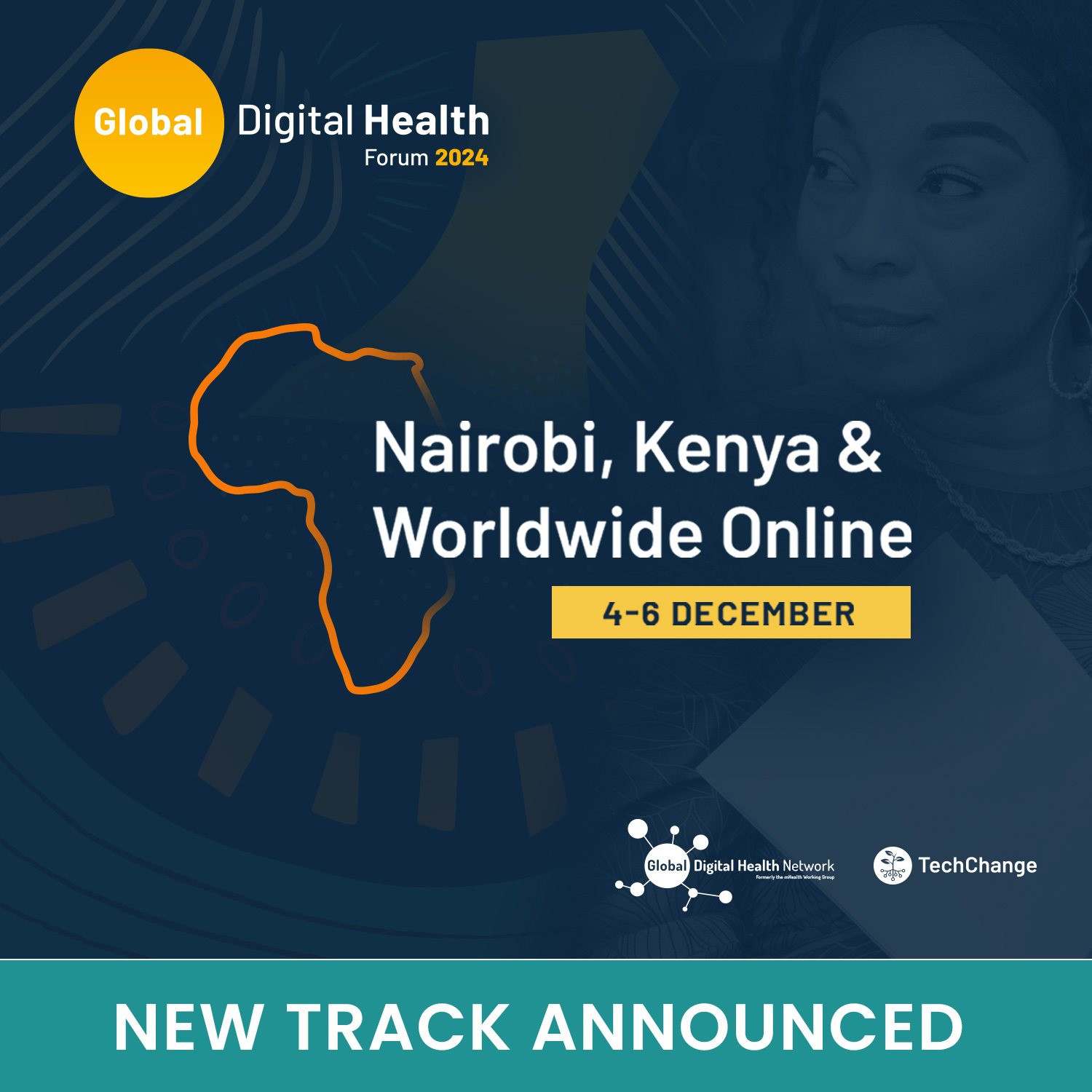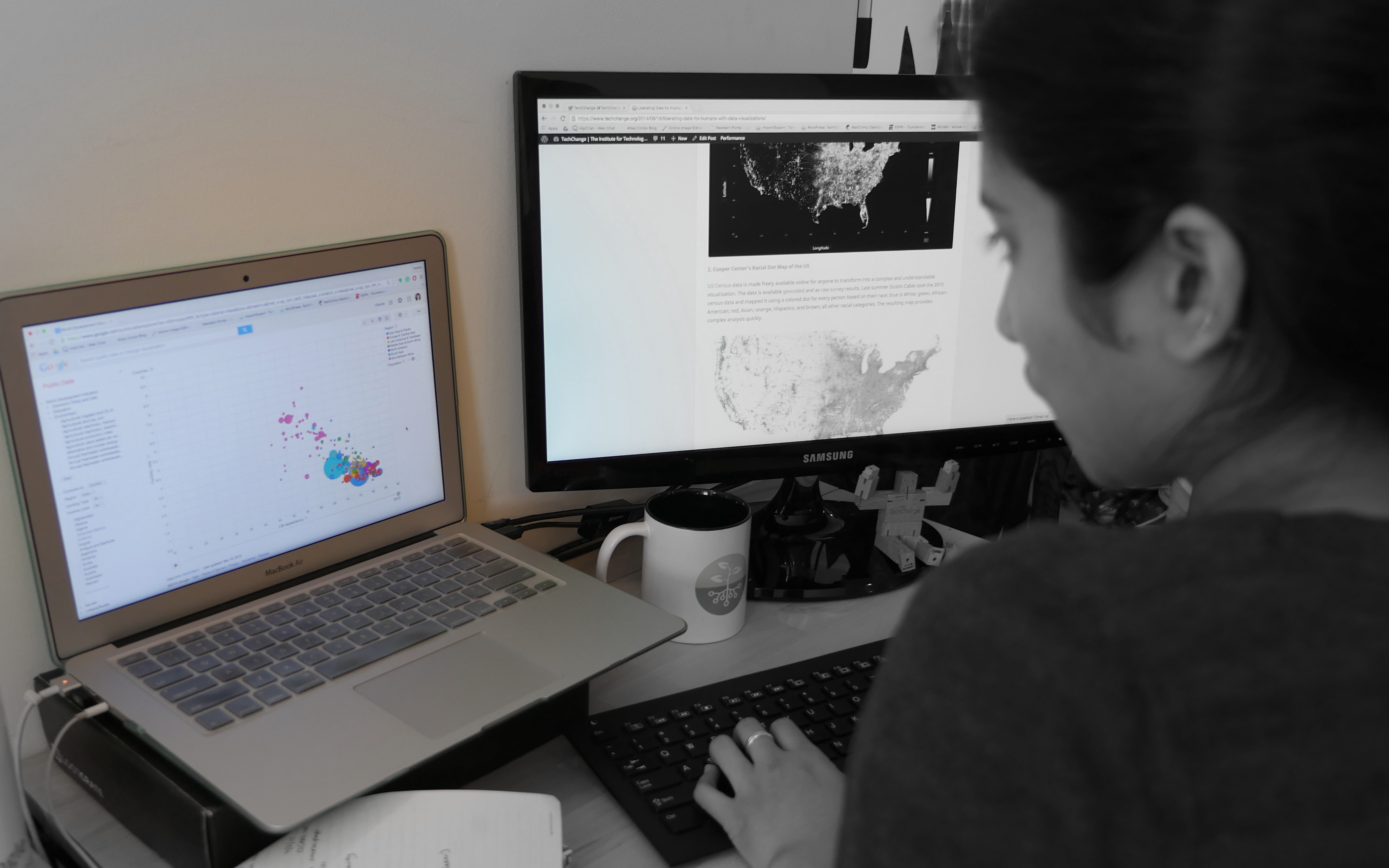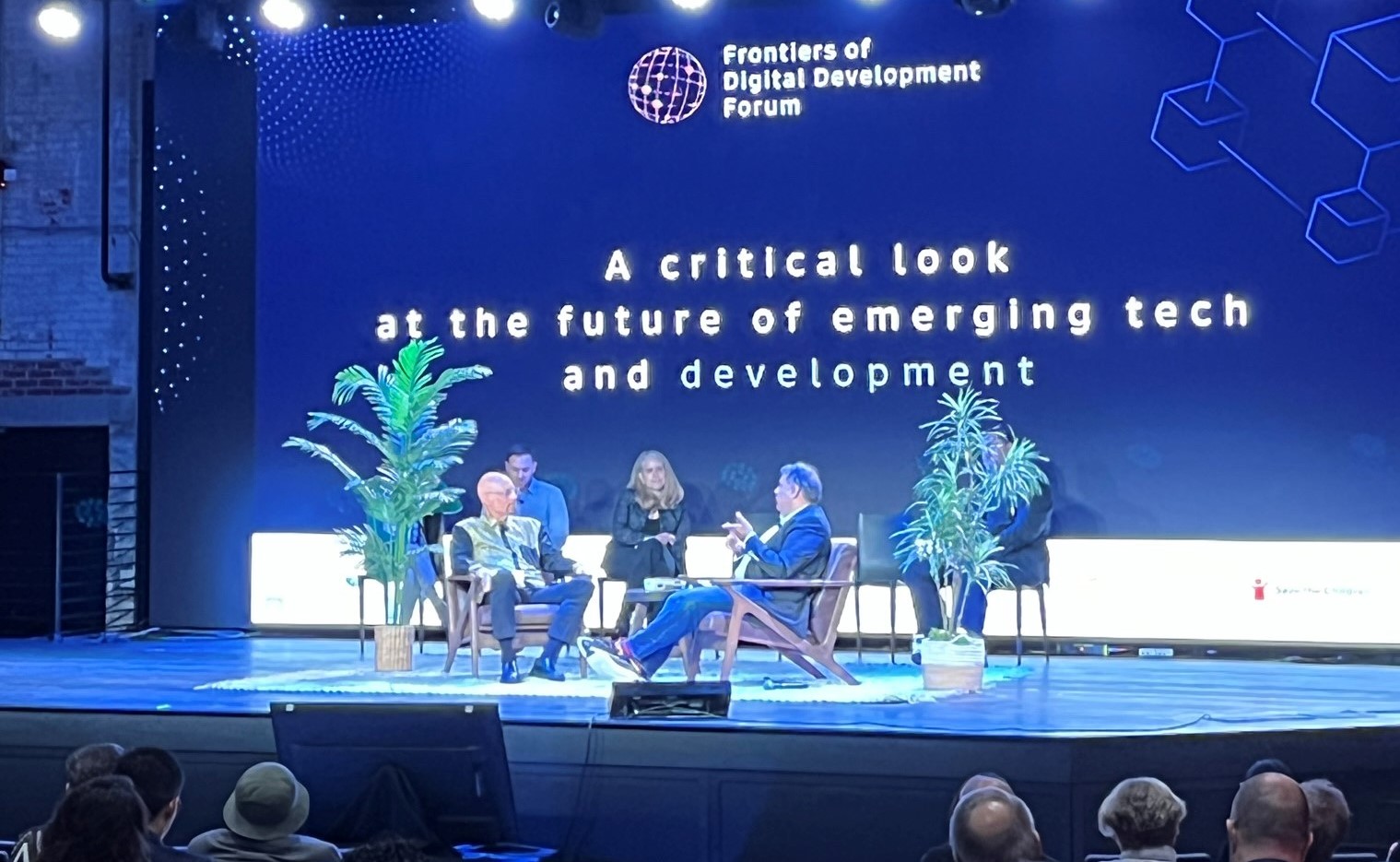By Lara Henneman, TechChange Special Projects and Storytelling
Rising temperatures, extreme weather events, and changes in disease patterns are all consequences of global warming with grave impacts on human health. To meet these rapidly worsening challenges, health professionals urgently need data-driven insights and modern digital tools. This year’s Global Digital Health Forum (GDHF), December 4-6 in Nairobi, Kenya and worldwide online, will feature a specialized track sponsored by Digital Square at PATH, Wellcome, and The Rockefeller Foundation on this vital and timely intersectional topic, focusing on immediate action and pathways for countries and organizations to strengthen resilience and sustainability through integrated climate and health data.
The Climate-Informed Data Services for Health Track
PATH is a global NGO that works to advance health equity through innovation and partnerships, including their support of the TechChange-led Digital Health: Planning National Systems course. With extensive experience working alongside communities and health systems worldwide, PATH understands the unique challenges faced by those most vulnerable to health and economic inequities–especially as climate threats intensify. By sponsoring the Climate-Informed Data Services for Health track at the world’s largest conference for digital health implementers, PATH aims to spotlight how digital tools such as artificial intelligence (AI) and localized climate indicators can be used to address health concerns exacerbated by climate and extreme weather events, from rising malaria mortality rates to mental health challenges.
Bringing together digital health, climate science, and public health experts, the GDHF Climate-Informed Data Services for Health track will feature presentations, workshops and discussions that explore the role of digital public goods (DPGs) and infrastructure in addressing climate-related health risks.
From the Plenary Stage to Action-Oriented Workshops
The plenary session featured in this track, “Building Climate Health Resilience through Coordinated Investment in Digital Public Goods,” will welcome experts from the World Health Organization (WHO), the WHO and World Meteorological Organization Joint Office for Climate and Health, Kenya’s Ministry of Health, Wellcome, The Rockefeller Foundation, and Digital Square at PATH. The plenary will be a crucial moment to discuss advancements in climate-informed data systems, including how digital public infrastructure (DPI) is a foundational element from which climate can be addressed. The session will also highlight ongoing efforts by the host country of Kenya to improve climate resilience.
Complementing the plenary discussion are interactive workshops such as “The DHIS2 Climate Data App: Leveraging the DHIS2 Platform for Climate-Informed Health Programming.” The DHIS2 Climate Data App enables users to integrate, track and analyze the relationships between climate data and health outcomes, supporting more climate-resilient health systems and more effective responses and interventions. Sound complicated? This workshop, led by Omiel Patrick Okecho, Regional DHIS2 Implementer, will make it anything but. This session will enable participants to download, configure, install, and use the DHIS2 Climate Data App in their DHIS2 systems, kick-starting their journey toward climate-informed health systems and more effective intervention and response.
For an even deeper exploration, the Climate & Health subgroup of the Digital Health & Interoperability Working Group will host a workshop that enables digital health providers to better understand and respond to climate-related health needs. The workshop will guide climate experts, health technologists, and implementers in accessing and integrating climate data to identify and measure its impact on health outcomes and to apply these insights in digital health solutions.
Conference Agenda Includes Emphasis on the Most Vulnerable
Climate change has serious impacts on the sexual and reproductive health, rights, and autonomy of women and girls, often disrupting healthcare services, limiting access to contraception, and increasing gender-based violence during climate disasters and migration. As a part of this PATH-sponsored track, Theodora Gibbs, the Climate Director at YLabs will lead a workshop showcasing how digital tools are addressing challenges at the nexus of climate, gender, and health.
In “Digital Breakthroughs for Ensuring Sexual and Reproductive Health and Rights (SRHR) in the Face of a Changing Climate,” participants will hear about how new machine learning technologies can unpack the impacts of climate change on SRHR, while advanced tools such as sensors, GPS and forecasting can illustrate and quantify the future risks of climate change to women’s health. The session will also demonstrate how disasters need not stop sexual and reproductive health services, showcasing the innovative use of drones, unmanned systems, and telemedicine platforms that enable remote consultations and medical support when physical access to healthcare facilities is compromised.
Register today to participate in GDHF in-person or virtually
In addition to this amazing climate-focused track, the GDHF agenda features a wealth of knowledge-building and networking opportunities for technology vendors, donors, researchers, government representatives, and implementing organizations working in low- and middle-income countries. This year we are proud to offer a three-day hybrid experience, including virtual and in-person programming that will make the conference an inclusive, accessible, and vital opportunity for growth and connection in a changing world.




